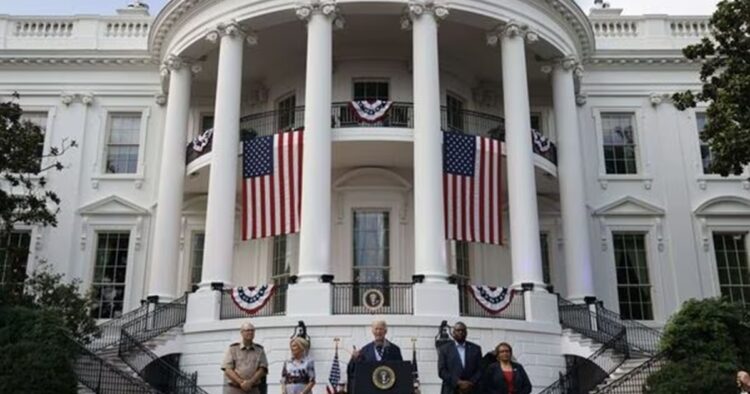In an eleventh-hour move, Congressional leaders have struck a deal to prevent a potentially disruptive government shutdown in the United States. The agreement entails one week of temporary funding, aiming to sidestep a partial shutdown scheduled for March 2 and sustain government operations until September 30. However, a looming threat of a shutdown on March 23 still hovers over portions of the government, including the Defense and Homeland Security departments.
The deal faced swift backlash from hardline Republicans, such as Representative Ralph Norman of South Carolina, who labeled it “an insult to the American people.” Despite this criticism, Speaker Mike Johnson appears poised to defy his right flank and compromise in order to keep the government functioning.
The White House has given its backing to the agreement, with Press Secretary Karine Jean-Pierre emphasizing that it “would help prevent a needless shutdown while providing more time to work on bipartisan appropriations bills.” Financial markets, seemingly anticipating a last-minute deal, have largely shrugged off the risk of a shutdown.
In a joint statement, House and Senate leaders announced that Congress will vote in the coming days on a one-week temporary funding measure to avoid a shutdown on Saturday. The House is scheduled to take the lead with a floor vote on Thursday. This marks the fourth instance since the beginning of the fiscal year on October 1 that Congress has resorted to interim spending.
The need for short-term funding stems from technical work remaining on the overall spending package, agreed to in principle. Although negotiators haven’t finalized spending for the entire government, the temporary funding extends coverage to March 22.
Despite potential backlash from conservatives demanding new immigration restrictions, Republican leaders are supporting the deal. They have chosen to leverage emergency funding for Ukraine assistance as a bargaining tool with President Joe Biden, drawing criticism from within their own ranks. Virginia Republican Bob Good, leader of the ultraconservative House Freedom Caucus, expressed concern, stating, “It seems we are just doing what the Democrats want.”
The agreement allocates funds for various departments, including Agriculture, Transportation, Housing and Urban Development, Veterans Affairs, and Energy, as well as the Food and Drug Administration. Notably, it includes full-year funding for the Environmental Protection Agency and the departments of Commerce, Justice, and Interior, preventing the closure of national parks.
Surprisingly, the deal encompasses funding for the Justice Department, countering conservative efforts to defund investigations into Donald Trump. The overall agreement aligns with a $1.59 trillion spending level for fiscal 2024, a consensus reached by Republican and Democratic negotiators in January.
Negotiations for funding the remaining government, particularly the Homeland Security Department, are expected to be challenging due to ongoing disputes over asylum policies at the US southern border.

















Comments